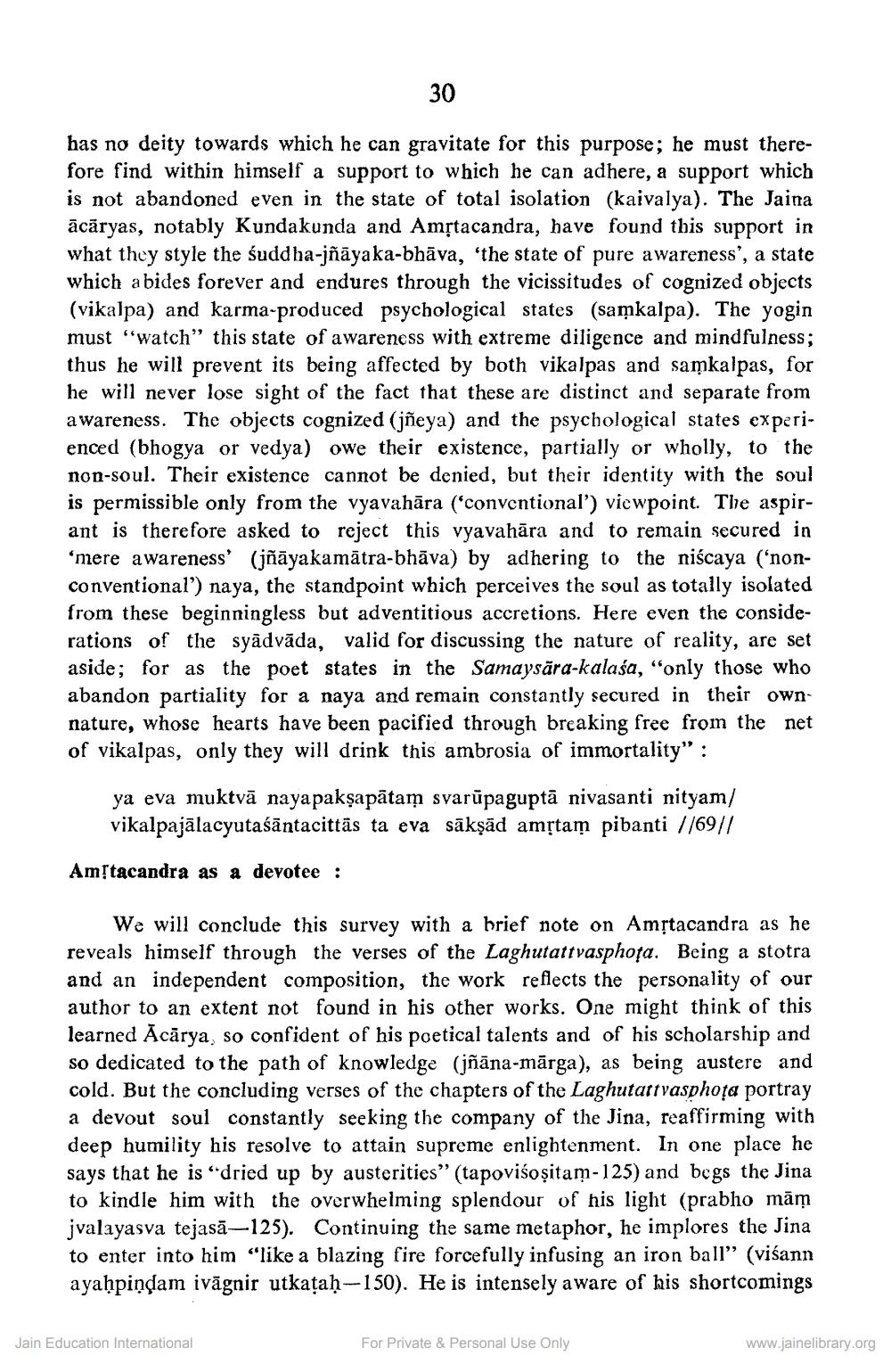________________
30
has no deity towards which he can gravitate for this purpose; he must therefore find within himself a support to which he can adhere, a support which is not abandoned even in the state of total isolation (kaivalya). The Jaina ācāryas, notably Kundakunda and Amstacandra, have found this support in what they style the suddha-jñāyaka-bhāva, 'the state of pure awareness, a state which a bides forever and endures through the vicissitudes of cognized objects (vikalpa) and karma-produced psychological states (saņkalpa). The yogin must "watch" this state of awareness with extreme diligence and mindfulness; thus he will prevent its being affected by both vikalpas and samkalpas, for he will never lose sight of the fact that these are distinct and separate from awareness. The objects cognized (jñeya) and the psychological states experienced (bhogya or vedya) owe their existence, partially or wholly, to the non-soul. Their existence cannot be denied, but their identity with the soul is permissible only from the vyavahāra ('conventional') viewpoint. The aspirant is therefore asked to reject this vyavahāra and to remain secured in ‘mere awareness' (jñāyakamātra-bhāva) by adhering to the niscaya ('nonconventional') naya, the standpoint which perceives the soul as totally isolated from these beginningless but adventitious accretions. Here even the considerations of the syādvāda, valid for discussing the nature of reality, are set aside; for as the poet states in the Samaysăra-kalasa, "only those who abandon partiality for a naya and remain constantly secured in their ownnature, whose hearts have been pacified through breaking free from the net of vikalpas, only they will drink this ambrosia of immortality" :
ya eva muktvā nayapakşapātam svarūpaguptā nivasanti nityam/ vikalpajālacyutaśāntacittäs ta eva sākşad amstam pibanti //69//
Amstacandra as a devotee :
We will conclude this survey with a brief note on Amrtacandra as he reveals himself through the verses of the Laghutattvasphoja. Being a stotra and an independent composition, the work reflects the personality of our author to an extent not found in his other works. One might think of this learned Ācārya, so confident of his poetical talents and of his scholarship and so dedicated to the path of knowledge (jñāna-mārga), as being austere and cold. But the concluding verses of the chapters of the Laghutattvasphoța portray a devout soul constantly seeking the company of the Jina, reaffirming with deep humility his resolve to attain supreme enlightenment. In one place he says that he is dried up by austerities” (tapovišoșitam-125) and begs the Jina to kindle him with the overwhelming splendour of his light (prabho mām jvalayasva tejasā—125). Continuing the same metaphor, he implores the Jina to enter into him "like a blazing fire forcefully infusing an iron ball” (višann ayahpiņşam ivägnir utkațaḥ-150). He is intensely aware of his shortcomings
Jain Education International
For Private & Personal Use Only
www.jainelibrary.org




